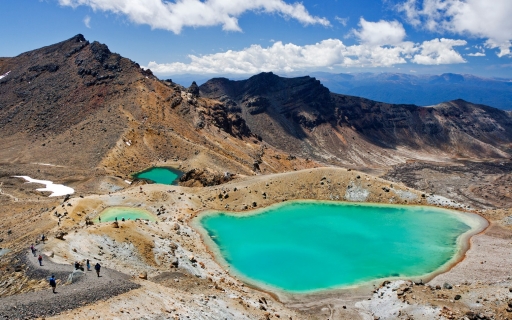Snells Beach Weather and Climate: A Comprehensive Guide
The weather in Snells Beach sees moderate temperature fluctuations over the course of a year.
Temperatures can be warm at the high end
to roughly mild at the low end.
It also experiences much rainfall throughout the year.
Let's now guide you through the climate details for a complete overview.
Average maximum day and minimum night temperature
The climate in Snells Beach experiences moderate temperature changes, with mild shifts between seasons. Average daytime temperatures reach a comfortable 24°C in February. In July, the coolest month of the year, temperatures drop to a moderate 16°C.
At night, you can expect cooler temperatures, with averages dropping to around 10°C during this month. Check out our detailed temperature page for more information.Temperature ranges by month
Precipitation and rainy days
Snells Beach experiences significant rainfall throughout the year, averaging 1108 mm of precipitation annually. Snells Beach experiences moderate seasonal variation in rainfall, with monthly averages ranging from 121 mm in July, the wettest month, and 73 mm in January, the driest month.The mean monthly precipitation over the year, including rain, hail and snow
Sunshine over the year
Snells Beach can be enjoyed more throughout the sunniest month of January under a blue sky, with approximately 7.7 hours of sunshine daily. In contrast, the city experiences much darker days in June, with only 3.9 hours of sunlight per day. Visit our detailed sunshine hours page for more information.Monthly hours of sunshine
Daily hours of sunshine
Average humidity
The city experiences its highest humidity in June, reaching 89%. In November, the humidity drops to its lowest level at 77%. What does this mean? Read our detailed page on humidity levels for further details.
Relative humidity over the year
almost clear and no rain almost clear and no rain partly cloudy and no rainForecast for Snells Beach
Select a Month of Interest
Check the conditions for any month of the year.
The best time of year to visit Snells Beach in New Zealand
During the months of January, February, March, April and December you are most likely to experience good weather with pleasant average temperatures that fall between 20°C and 26°C.Other facts from our historical weather data:
February has an average maximum temperature of 24°C and is the warmest month of the year.
The coldest month is July with an average maximum temperature of 16°C.
July tops the wettest month list with 121 mm of rainfall.
January is the driest month with 73 mm of precipitation.
January is the sunniest month with an average of 230 hours of sunshine.
No idea where to travel to this year? We have a tool that recommends destinations based on your ideal conditions. Find out where to go with our weather planner.




